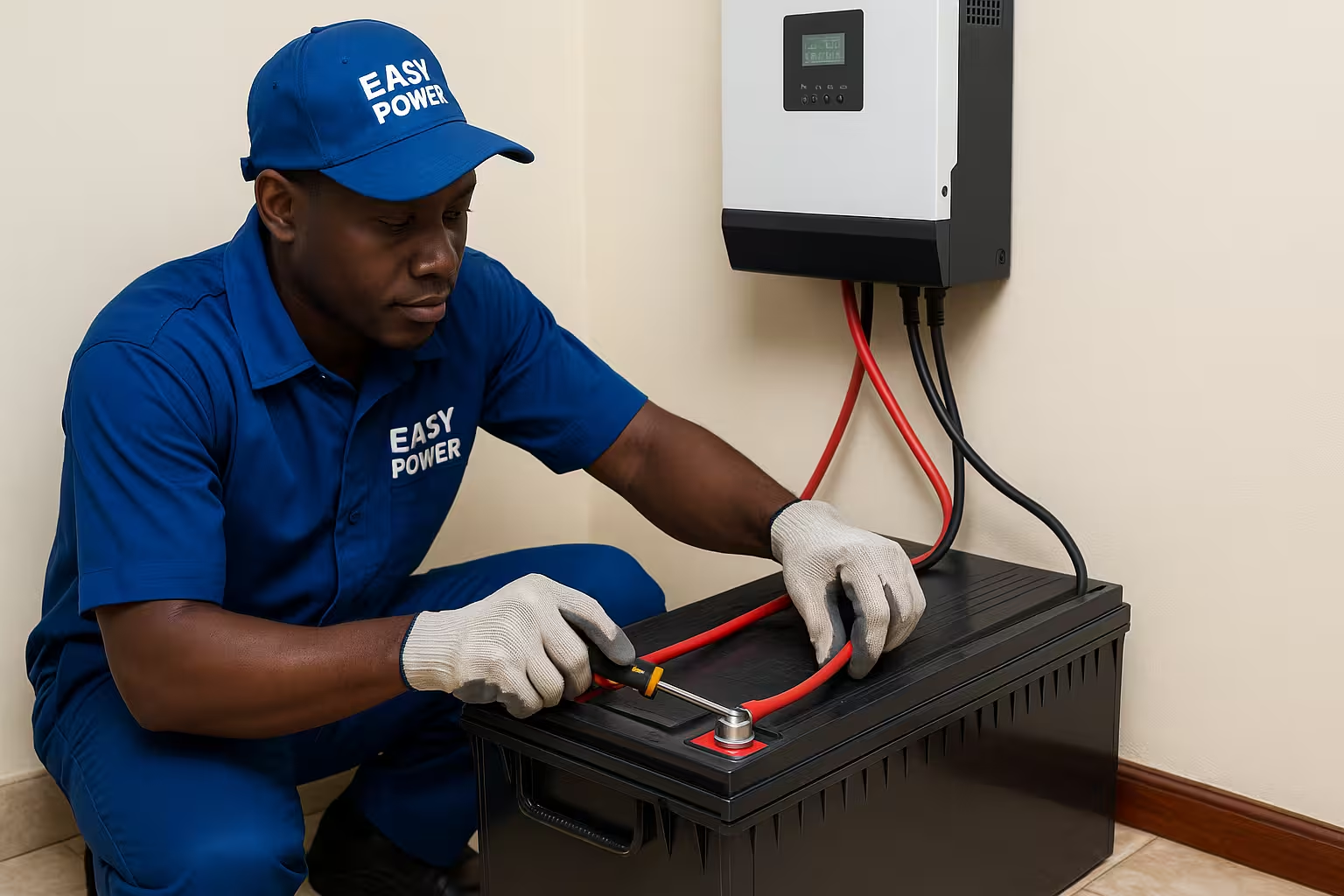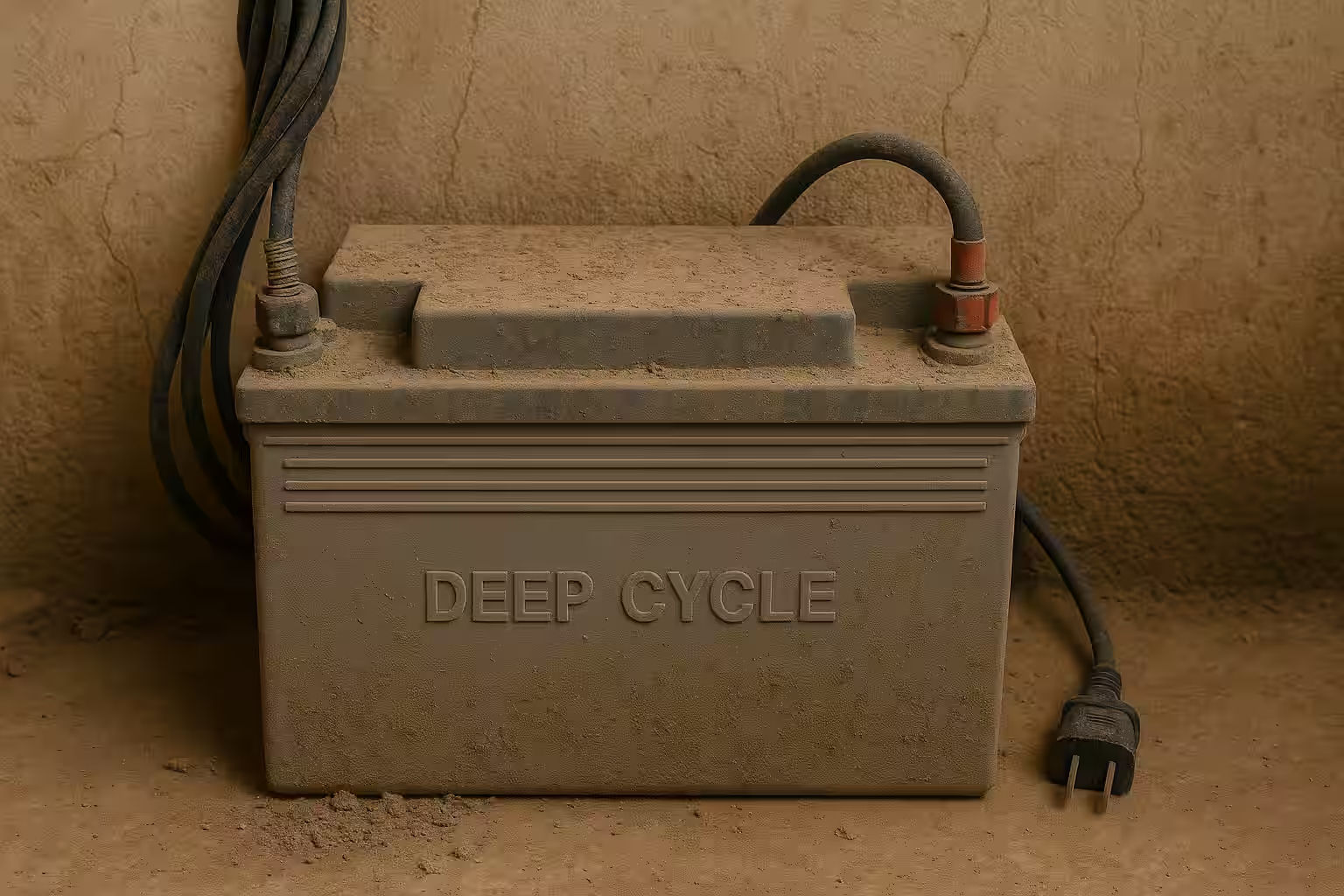Gel battery lifespan is the one thing most people ignore—until you’re stuck with power cuts and a dead backup system.
You’re probably here because:
Your last battery died too soon
You’re not sure how long a genuine gel battery should last
Or you want to avoid spending twice for the same solution
Let’s break this down like we’re chatting over a cup of tea in Kampala.
What’s the Real Gel Battery Lifespan in Uganda?
The typical gel battery lifespan ranges from 6 to 10 years.
But here in Uganda? Between the heat, dust, and bad charging habits, many people only get 3 to 5 years.
This happens a lot, especially if you’re using the wrong inverter. We explain this in detail in our guide on deep cycle gel batteries and their backup power benefits.
What Shortens Your Battery’s Lifespan?
Here’s what kills gel batteries before their time:
Overcharging using outdated or mismatched inverters
Fully draining the battery repeatedly
Storing it in hot or cramped spaces
Falling for counterfeits—Uganda’s market is full of them
If you’re not buying from a trusted supplier, you’re gambling. We covered this in our post on the advantages of using original solar batteries in Uganda. It’s worth the read.
How to Make Your Gel Battery Last Longer

Want your battery to serve you well for 5–8 years? Do this:
Use a quality solar charge controller
Keep it above 50% charge always
Install it in a cool, clean, shaded space
Stick to genuine batteries, like Oliter Gel Batteries from Easy Power
Pair it with the right inverter (more on inverter options in Uganda here)
A Real Ugandan Story
One of our clients in Mbarara was burning through batteries every year—thinking it was “normal.”
We ran a quick check.
Turns out, he was using a low-cost inverter and a fake 200Ah battery.
After we swapped in a pure sine wave inverter and one of our genuine Oliter 200Ah gel batteries, he’s been running for 3+ years without issues.
That’s the kind of power backup you get when everything is matched right. If you’re exploring broader options, here’s how to build a reliable power backup system in Uganda.
Still a Great Option in 2025
People ask: “Are gel batteries still worth it?”
Absolutely.
No maintenance (no topping up acid)
Safe (no leaks or spills)
Solar-ready (deep discharge friendly)
They work beautifully in homes, small businesses, and solar setups. If you want something longer-lasting, we also stock rechargeable lithium batteries in Uganda. But for the price and stability? Gel batteries are still rock solid.
Quick Tips to Extend Gel Battery Lifespan
✅ Never drain it below 11.8 volts
✅ Install it where there’s airflow
✅ Avoid direct sunlight or metal-roof heat
✅ Clean terminal dust every few weeks
✅ Don’t connect it to an underpowered inverter
FAQ on Gel Battery Lifespan
Gel batteries charge slower than other types and can be sensitive to overcharging without a proper controller. They’re also heavier, cost more than flooded batteries, and can’t handle high loads as well as lithium batteries. Improper installation can reduce their lifespan, especially in hot Ugandan environments.
Lithium batteries are generally better. They last longer, charge faster, and handle deeper discharges without damage. While gel batteries are more affordable and safer than lead-acid, lithium offers more cycles, lighter weight, and better energy efficiency—especially in solar setups where reliability and long-term value matter most.
A gel battery is a sealed, maintenance-free battery that uses gelled electrolyte instead of liquid acid. It’s designed for deep cycle use, resists vibration, and doesn’t spill. Gel batteries are ideal for solar systems, UPS backups, and off-grid setups where safety, stability, and long-term use are key.
Yes—gel batteries are safer, don’t spill, and don’t need water refills. Unlike liquid (flooded) batteries, they work well in enclosed spaces and extreme temperatures. They’re better for solar and backup systems in Uganda, although they cost more upfront and can be damaged if not properly charged.
Final Thoughts on Gel Battery Lifespan
The truth is—your gel battery lifespan depends on how well you treat it.
And let’s be honest: most Ugandans only replace batteries because no one explained how to take care of them.
Now you know.
Start with a genuine battery, pair it with the right gear, and give it room to breathe—your power won’t let you down.

